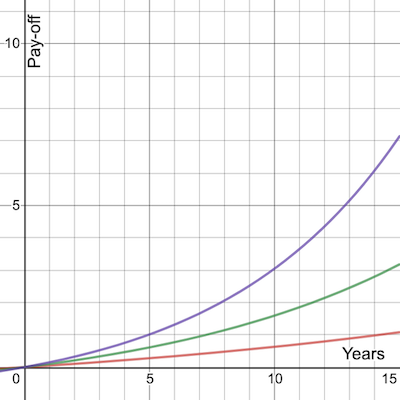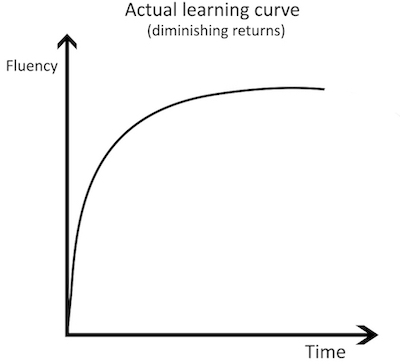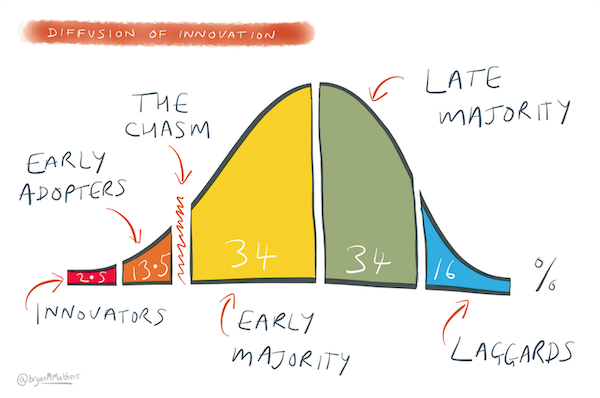Despicable it maybe we all have wondered at times, “Why is this guy or girl so successful ?” or sometimes filled with righteous indignation “Why are actors paid more than the doctors ?”. Those are some valid questions and deserve a thoughtful answer rather than a judgment based solely on one’s emotion. Such questions recently provoked me to a very fundamental question - “What is success and how do we measure one’s worth ?”
While measuring success holistically is quite elusive, measuring what one’s worth isn’t. Although success can be measured by one’s worth, one might argue that’s not true, but again I have never seen a successful person who isn’t wealthy. Now you might give me examples of freedom fighters and revolutionaries who were not rich but very successful, but again aren’t they worth more, even if posthumously true so? (I wonder what Che Guevara would be thinking about companies making huge profits by selling his merchandise) Anyway, we won’t get into much philosophical or political aspects of success because that will shroud our understanding of the bigger picture that I wish to draw here. So let’s go back to a simpler question that perhaps we can answer -
“How do we measure one’s worth ?“
I have always been fascinated by equations, numbers, and graphs. They wrap up dense prose of knowledge into a beautiful verse of comprehension. Being a geek I thought what better way to explain this question too, with some equations and graphs. So here I came with an equation to measure one’s worth or in other words the value they bring to the society.
V ∝ SCWT … (1)
Here is what it means,
- V = Value (Your value or net worth)
- S = Skill (in providing the service or product)
- C = Clients (Number of people using your service or product)
- W = Working hours. (The time you spend on daily basis on your job/business)
- T = Time spent (in your profession in years)
In simple words, your net worth is determined by your skill, your reach and how much you’ve been grinding at your profession for years.
Now this might look palatable intuitively too, but it has even deeper implications than these simple inferences. Keep reading and you will be confounded by these deeper implications that we will discuss in the end.
Let’s decrypt the above equation letter by letter.
WT
W is the normalized daily working hours. This means that if the average working hours of people around you is 7 hours and you work for 14 hours, then your W = (14/7) = 2. You might have heard people say, “Don’t work hard, work smart” - this is definitely true because there is a hard limit to this parameter. Nobody has more than 24 hours a day ! However, T which is the time spent in years working on your profession, can compound your hard work over a long period and can show you noticeable difference only after some years. It’s okay if you’re slow, as long as you keep working hard, you will eventually get the results.
Your value is not an absolute number, it can never be - it is in relative terms compared to your competition. Hence we are computing the normalized values with respect to your competition. It doesn’t mean that if you’re working less number of hours you’re not worth more, but rather it means that if you’re not growing faster than the rate of growth of the world, your competition - or in general people around you, then even though you’re growing by your own means but you’re not worth more as there are better people around you.
Take a look at the below examples where we assume both the people have same skills/intelligence etc and just comparing them based on their efforts at work. For the sake of simplicity let’s assume that W incorporates work efficiency too [i,e someone might be more productive, fast learner etc]
Let’s say your W = 1.1 - you’re a hard working person, putting in more effort than the others.
| Year | You | Your colleague | Comment |
|---|---|---|---|
| 1 | 1.1 | 1 | No noticeable difference in your work. He is mocking you for working so hard |
| 5 | 1.15 = 1.61 | 1 | Guess who got the promotion and who is still stuck at the same position |
Let’s say your W = 0.9 - you’re a lazy person, working less than people around you.
| Year | You | Your workplace | Comment |
|---|---|---|---|
| 1 | 0.9 | 1 | You’re enjoying while other around your are working hard |
| 5 | 0.95 = 0.59 | 1 | You might just be on the verge of getting fired |

S
S is your skill. You provide a service or sell products and be useful to society in a certain way and it, in turn, values your skill and expertise by paying you for your product or services. So a good measure of S skill is by assessing how much people are ready to pay you. There are a vast majority of professions, each requiring a different set of skill-sets and each having a different pay-scale.
How much people are ready to pay P - for your product/service would be governed by the below equations -
P ∝ α(needs) + β(wants)
P ∝ demand / supply … (2)
The above equations give us a clear idea of why some service/product demand more money than others from you. Also note that during a bad time, people will definitely cut down on their wants but will be forced to pay for their needs no matter what the premium.
We’ve often overlooked the relation between Skill and time invested in developing the skill. People often feel that the more you invest time in your skill the better you get at it - which is true but the relation is not linear ! Also we feel that we need to invest a lot to learn and become good at something.

What we can learn from this is that, it’s relatively easier to get good at something in a shorter period (maybe only ~ 20 hours of practice is enough ?) of time than you think. But, also it’s difficult to get better once you’re already good at something. You have to put in even more hours working on it to see even a noticeable change. I know it sounds discouraging to say that you won’t get better as quickly as you did earlier at it, but my point here is for every individual, there will be an upper practical limit to what skill level they can achieve. We’ve been always taught to never give up and hustle, I absolutely agree with that philosophy, but one must accept the limits of their ability too, failing to do that will result in stalling your chance of reaching even greater potentials in life which is not solely judged by your skill.
So we see that both W and S has an upper practical limit to it, still, most people spend their lives perfecting and improving these two things and completely missing the last parameter that could have completely changed their life.
C
C is the number of clients, number of people that consume your service or product, number of people whose life you touch and inspire.
“The most successful people are not the most skilled nor necessarily the most hard-working but certainly the most inspiring ones!”
You could be a great chef at a restaurant earning an above-average wage or you could be a decent chef with a YouTube channel reaching out to millions of subscribers. Your ability to reach out and influence people can radically change your worth.
George Eastman - the founder of Kodak, developed a camera that was portable but produced inferior quality photos compared to the professional bulky cameras of that time. The professional photography industry rejected his camera, but the hobbyist photographers and normal people like us loved it. They didn’t care much about the quality as much as the professionals did. Eastman’s product was not the best technically, yet it was the most affordable and practical for the masses.
“Give a problem to a person, the one obsessed over the perfection and elegance of the solution will hardly make any practical advancement over an
entrepreneurialmind, whose sole focus would be to find a pragmatic solution for the masses”
The secret to high net worth or to success lies in your ability to sell your idea, your product or your service to a lot of people. So start focusing on that if you’re feeling stuck in your life. Reaching out to people is not easy in the beginning. It takes a lot of time and patience, rejections and iterations of refinement to have more people use your service. In today’s world we call this struggle entrepreneurship.
Getting the first 10 paying customer, hitting the first 10,000 views on your YouTube channel - the beginning will always be difficult, but once you cross past the chasm or the tipping point you will see vast majority of people start following you, or start using your product.

I hope this gave you a different perspective about life, finding one’s purpose and it also taught us not to compare people’s pay and worth solely based on their profession or expertise. I hope each one of you gets more than you have desired from this life.
